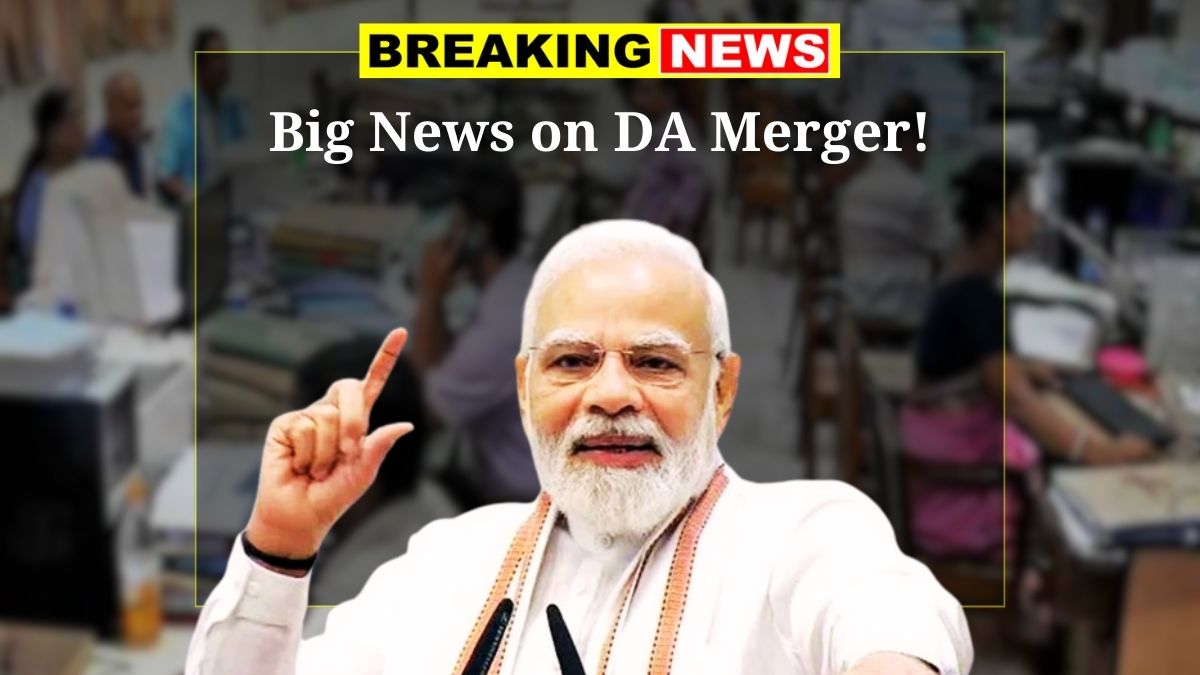Dearness Allowance Merger : If you’re a government employee or pensioner, there’s a hot topic making the rounds this May 2025—will Dearness Allowance (DA) be merged into Basic Pay?
It’s not just a rumor anymore. Sources from the Finance Ministry say the government is seriously considering this long-pending demand, and a decision may come as early as July 2025. Here’s everything you need to know about the potential DA merger and what it could mean for your salary and pension.
What’s the DA Merger All About?
Dearness Allowance (DA) is an inflation-linked allowance that’s revised twice a year. It’s currently over 50% of basic pay, which is a significant chunk of every government employee’s salary.
The idea behind merging DA into basic pay is simple: add the current DA amount to the basic salary. This would raise the overall basic pay, which in turn impacts future pay hikes, pension calculations, and other allowances. For many, it’s seen as a stepping stone to a more robust pay structure.
Where Do Things Stand in May 2025?
As of now, discussions are actively ongoing within the Ministry of Finance. While there’s no official notification yet, insiders suggest the government is evaluating the financial implications, especially the increased expenditure it could bring.
The employee unions, on the other hand, are demanding a clear timeline, ideally pushing for a June 2025 cut-off date and hoping for the merger to be aligned with the upcoming 8th Pay Commission.
How Much Could Salaries Increase?
Here’s a simple example to show the possible impact:
- Let’s say your current basic pay is ₹50,000, and DA is at 50%, or ₹25,000.
- After the merger, your new basic would become ₹75,000.
Although this doesn’t mean your take-home pay increases immediately by ₹25,000 (since DA as a separate component would go away), it sets the stage for bigger increments in future pay commissions and higher HRA, pension, and other benefits.
What About Pensioners?
For pensioners, this could be a game-changer. Pensions are calculated based on the last drawn basic pay, so if that base amount increases, pensions will naturally get a boost.
This is especially welcome news for older retirees, who’ve seen their pensions lag behind due to past basic pay structures.
Why the Delay?
It’s a money issue—plain and simple. Merging DA into basic pay would reportedly cost the government an additional ₹1.5 lakh crore per year. That’s why there’s talk about either a phased rollout or waiting until the 8th Pay Commission’s implementation.
The buzz is strong, and employees’ unions are pushing hard. If things go as hoped, July 2025 might bring some good news.
Until then, all eyes are on the Finance Ministry. If you’re a government employee or pensioner, stay tuned, because this change could make a major difference to your financial future.





